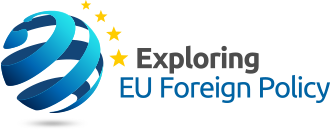Abstract
The webinar looks into the diverse approaches, models and solutions for partnerships in the European space sector and discusses them from a legal perspective. The space sector traditionally builds upon a close interaction between public and commercial stakeholders. However, both space policymakers and industry do not stop to call for a new ways of partnerships. In view of NewSpace, industry namely calls for anchor tenancy commitments from public clients. The webinar starts from a space policy perspective, then identifies the different partnership approaches, categorizes and compares them and provides legal background to each of them.
Short Bio
Dr Ingo Baumann is partner of BHO Legal, a boutique technology law firm based in Cologne, Germany and one of Europe´s leading space law firms. Ingo has more than 20 years of professional experience in the space industry. He wrote his PhD at the Cologne Institute of Air and Space Law on the international law of satellite communications. Before establishing BHO Legal, he was legal adviser within the German Aerospace Centre (DLR), becoming later the Head of the DLR Galileo Project Office, and CEO of DLR GfR mbH, the operating company of DLR for the German Galileo Control Centre. He is advising ministries, space agencies, research organisations, universities and companies of all types involved in large public space programmes as well as commercial space activities across all application areas. His expertise covers international and national space law, international and national telecommunications law, procurement law, R&D law, IT law and all types of space industry contracts. Over the years, Ingo has been involved in numerous large public space programs such as Galileo, Copernicus, EDRS, or SatcomBW and he is closely supporting several NewSpace companies in their business development.
Ingo Baumann is member of the International Institute of Space Law (IISL), the European Centre for Space Law (ECSL), the Space Law Committee of the International Bar Association (IBA) and various other professional space industry organisations. He is co-editor of the upcoming Routledge Handbook of Commercial Space Activities, column editor of “GNSS & the Law” in InsideGNSS and regular speaker at space industry conferences.
Moderator: Ms. Giulia Pavesi (Leuven Centre for Global Governance Studies)
